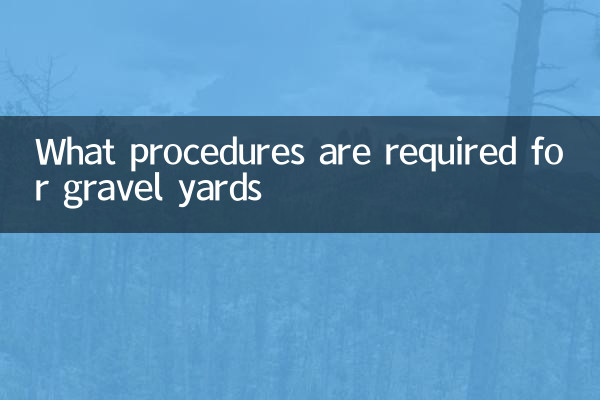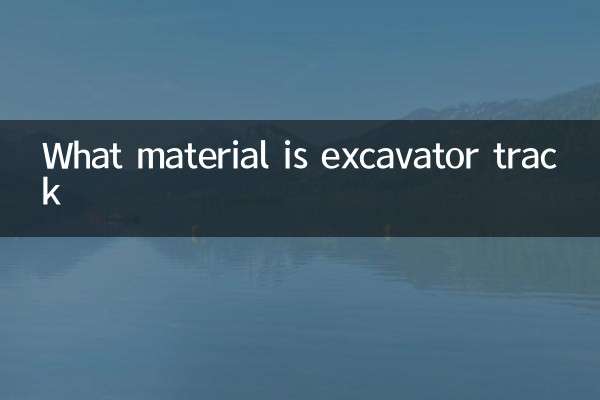What procedures are required for gravel yards
In recent years, with the rapid development of infrastructure construction, gravel fields, as an important source of building materials, have attracted much attention. This article will combine popular topics and hot contents across the network for the past 10 days to introduce in detail the procedures required for the establishment and operation of gravel yards, and provide structured data for readers to quickly view.
1. Basic process for starting a gravel yard

Opening a gravel yard requires approval from multiple departments, mainly including industrial and commercial registration, environmental protection approval, land and resources approval, etc. The following are the specific steps:
| step | Required Procedures | Responsible department |
|---|---|---|
| 1. Industrial and Commercial Registration | Business license, tax registration certificate | Market Supervision Bureau |
| 2. Environmental protection approval | Environmental impact assessment report, pollution discharge permit | Ecological Environment Bureau |
| 3. Land and Resources Approval | Mining license, land use certificate | Natural Resources Bureau |
| 4. Production safety approval | Safety production license, emergency plan | Emergency Management Bureau |
| 5. Other approvals | Fire protection acceptance, water conservancy approval (if involved in river channels) | Related departments |
2. Key procedures in gravel yard operation
During the operation of the gravel yard, the following procedures must be completed regularly to ensure compliance production:
| Procedure Type | Processing frequency | Things to note |
|---|---|---|
| Annual review of pollutant discharge permit | Once a year | Annual environmental monitoring report is required |
| Safety inspection | Once a quarter | Need to cooperate with the emergency management department to inspect |
| Continuation of mining rights | According to the license term | Apply 6 months in advance |
| Tax declaration | Monthly/Quarterly | Resource tax is required on time |
3. Recent hot topics and policy trends
In the past 10 days, hot topics about gravel yards have mainly focused on environmental protection and production safety. The following are some hot contents:
1.Increase environmental protection policies: The ecological environment bureaus in many places have issued notices requiring gravel yards to strengthen dust and noise control, and enterprises that fail to meet the standards will face closure.
2.Special rectification of production safety: The Emergency Management Bureau carried out a three-month special inspection on mine safety, focusing on the aging of gravel yard equipment.
3.Resource tax reform: Some regions have piloted the adjustment of the gravel resource tax rate, and enterprises need to pay attention to local policy changes.
4. Frequently Asked Questions
Q1: What are the requirements for site selection of gravel yards?
A1: The site selection of gravel yards requires avoiding sensitive areas such as residential areas and water source protection areas, and also meeting the planning requirements of the land and resources department.
Q2: What are the environmentally friendly equipment in the gravel yard?
A2: Common environmentally friendly equipment includes dust collectors, spray systems, sound insulation walls, etc., which need to be configured according to the environmental impact assessment report.
Q3: How long is the procedures for gravel yard?
A3: It usually takes 3-6 months from industrial and commercial registration to formal production, and the specific time depends on the local approval efficiency.
5. Summary
Opening and operating a gravel yard requires a number of procedures, involving multiple departments such as industry and commerce, environmental protection, land, and safety supervision. Recently, the supervision of environmental protection and production safety has been strengthened, and enterprises need to pay attention to policy trends in a timely manner to ensure compliance operations. The structured data provided in this article can help you quickly understand the relevant procedures. It is recommended to consult the relevant local departments for the latest information before processing.

check the details

check the details